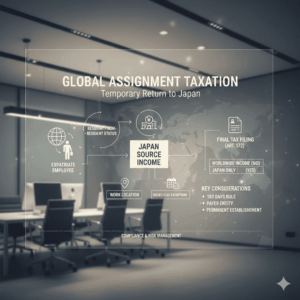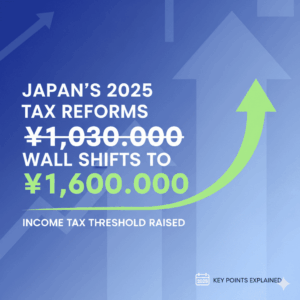What is export duty free?
Do you know that there is a consumption tax exemption system for exports? Consumption tax is basically levied on items consumed within the country. Domestic means within Japan.
Often referred to as tax exemption or tax exemption, this means that items purchased in Japan by foreigners for consumption abroad are exempt from consumption tax. This so-called tax exemption at export goods sales places (items purchased by foreigners in Japan and used overseas are exempt from Japanese consumption tax) is the same as tax exemption at export goods sales places. Article 8) However, I believe that the purpose is the same as the consumption tax exemption that I would like to introduce here in Article 7.
What I would like to introduce here is not tax exemption for export goods sales outlets, but Article 7 tax exemption of the Consumption Tax Act when Japanese people (corporations in Japan, foreigners residing in Japan, etc.) export goods, etc. overseas. is.
Consumption tax export exemption means that when goods are exported from within Japan to a foreign country, the exported goods will not be subject to Japanese consumption tax (exemption) if the purchaser is outside the country. is.
When you purchase a Japanese product in the United States, you don’t have to pay Japanese consumption tax just because it’s a Japanese product. This is because adding consumption tax when exporting puts domestic products at a disadvantage from the perspective of international competitiveness.
If you think about it from a business perspective, if you sell a product that costs 100 yen in Japan, you will be subject to 10% consumption tax and sell it to consumers in Japan for 110 yen.
On the other hand, when exporting overseas (selling to people in a foreign country), it can be exported for 100 yen (consumption tax is 0%) (However, in the importing country, it is equivalent to the customs duty and consumption tax. (In some cases, taxes may be imposed.)
Basic calculation method of consumption tax
The basic method for calculating the amount of consumption tax (this is just a conceptual explanation for your understanding.Actual calculation may be different) is to subtract the consumption tax paid from the consumption tax deposited. .
Consumption tax deposited – Consumption tax paid = If this value is positive, you need to pay consumption tax
Consumption tax deposited – Consumption tax paid = If this value is negative, consumption tax will be refunded
When calculating the consumption tax deposited, the consumption tax on export sales of products that can be treated as export tax exemption (requirements must be met) can be calculated as zero if there is no consumption tax.
This means that if there are only sales that meet the requirements for export tax exemption, the consumption tax due on sales can be reduced to zero. It is also sometimes referred to as 0% tax.
The important thing here is that consumption tax is not levied on export sales, but the costs incurred to produce the exported products can be deducted from input tax.
To explain briefly, let’s say you buy a product that costs 90 yen for 99 yen (10% consumption tax is applied) domestically. This will be exported for 100 yen. In the case of tax-inclusive accounting, the profit is the difference between 100 yen and 99 yen, which is 1 yen.
Consumption tax deposited: 0 yen – Consumption tax paid: 9 yen = Minus 9 yen
The consumption tax paid is larger.
In this case, if you are a business subject to consumption tax, you can request a refund of the consumption tax of 9 yen, which is the difference between the 0 yen consumption tax you deposited and the 9 yen consumption tax you paid. (Actually, there are cases in which you will not receive a full refund, but this is a simplified explanation.) In this case, you can receive a partial refund of the consumption tax you paid.
An example of a business model
Foreigners in Japan purchase taxable goods in Japan and export them to their home country. Even if taxes equivalent to customs duty or consumption tax are imposed in your home country, if you can sell the product, you can claim a refund of the amount equivalent to the consumption tax on the purchase in Japan. is.
However, if there is a profit, the difference between the sales price and the purchase price will be subject to corporate tax, income tax, etc. If you export at an unreasonably low price, you may be subject to other restrictions such as transfer pricing taxation.
The essence of receiving an export tax exemption is that in addition to being able to export without incurring domestic consumption tax, you can also receive a refund of the consumption tax associated with the purchase.
The basic method of calculating consumption tax is to pay the amount after subtracting the consumption tax paid (included in expenses other than salaries, etc., such as purchasing) from the consumption tax deposited (included in sales) (accurately). There are various cases). In the case of export, if the consumption tax deposited is only on export sales, it will be reduced to zero, leaving only the consumption tax paid domestically, and basically you will receive a refund for this portion. is.
Requirements for receiving tax exemption
According to Article 7 below, Paragraph 2 states that the transfer, etc. of taxable assets must be certified. This means that a certificate for export transactions is required.
According to the National Tax Agency’s website, for example, when exporting goods, an export permit is required, and when providing services, a contract that specifies certain matters is required for export. It may be required as proof of transactions, etc.
Article 7 of the Consumption Tax Law
Among the transfers, etc. of taxable assets carried out in Japan by businesses (excluding businesses exempted from the obligation to pay consumption tax pursuant to the provisions of the main text of Article 9, Paragraph 1), the following applies: , exempt from consumption tax.
- Transfer or loan of assets carried out as export from Japan
2. Transfer or loan of foreign goods (things that fall under the transfer or loan of assets listed in the preceding item) and the Act on Collection of Domestic Consumption Tax on Imported Goods (Act No. 37 of 1955) Article 8 (Excluding transfers of foreign goods that fall under the cases listed in Paragraph 1, Item 3 (Collection of domestic consumption tax in the case of public auction or sale, etc.)
- Transportation or communication of passengers or cargo across domestic and non-domestic areas
4. Transfer, loan, or repair of ships or aircraft exclusively used for the transportation prescribed in the preceding item, as specified by Cabinet Order.
5. Items specified by Cabinet Order as similar to the transfer, etc. of assets listed in each of the preceding items.
Article 17 and Article 19
2 The provisions of the preceding paragraph shall not apply if the transfer, etc. of taxable assets falls under the transfer, etc. of assets listed in the items of the same paragraph and is not certified pursuant to the Ministry of Finance Ordinance.










